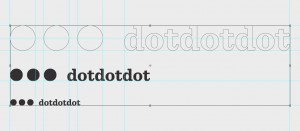Publishing Talks: David Wilk interviews Thomas Schinabeck
May 5, 2013 by David
Filed under Ebooks and Digital Publishing, PublishingTalks, Technology, The Future
 In this series of interviews, called Publishing Talks, I have been talking to book industry professionals and other smart people about the future of publishing, books, and culture. This is a period of disruption and change for all media businesses. We must wonder now, how will publishing evolve as our culture is affected by technology, climate change, population density, and the ebb and flow of civilization and economics?
In this series of interviews, called Publishing Talks, I have been talking to book industry professionals and other smart people about the future of publishing, books, and culture. This is a period of disruption and change for all media businesses. We must wonder now, how will publishing evolve as our culture is affected by technology, climate change, population density, and the ebb and flow of civilization and economics?
I hope these Publishing Talks conversations can help us understand the outlines of what is happening in the publishing industry, and how we might ourselves interact with and influence the future of publishing as it unfolds.
These interviews give people in and around the book business a chance to talk openly about ideas and concerns that are often only talked about “around the water cooler,” at industry conventions and events, and in emails between friends and they give people inside and outside the book industry a chance to hear first hand some of the most interesting and challenging thoughts, ideas and concepts being discussed by people in the book business. They also provide an opportunity to hear what all kinds of leaders and participants in publishing have to say about the communication between writers and readers through the particular lenses of their own experiences.
We’re far enough along in the development of ebooks and digital reading for numbers of individuals and companies to be interested in developing new ways to package and present text in ways that differ from those that developed over the last few hundred years of analog “real world” print publishing. Applications like Flipboard, Instapaper, Pocket, and Readability all allow readers to curate their own reading experiences by “clipping” articles and stories on the web, and saving them into reading software that makes both a better reading experience on your tablet than websites on laptops or desktops allow, and enables reading at leisure in a self controlled context. And sites like Social Reader from the Washington Post enables sharing and finding web content through existing social networks.
Dotdotdot, a new application now in beta, developed by Thomas Schinabeck and friends in Berlin is similar in shape, but goes farther, I think, to enable readers to have much finer controls over their e-reading experiences. Dotdotdot allows me to upload my own epubs as well as content I have discovered on the web, or that friends may have sent me. The site is socially enabled, so that members of the community can choose to share their own and follow what other users are reading. Annotation also adds to the reading and sharing experience – marginalia is fully integrated into the dotdotdot experience, so it is a truly social reading platform. And its archive capability allows readers to use dotdotdot as a repository – independent of devices or the closed ecosystems that e-readers create. And dotdotdot, unlike all the other content aggregating programs I have seen, is designed around long form reading.
“We thought if we find a technical solution for how we can import texts into a platform that the user already has, we can provide all the stuff on top of it that makes a great user experience, and also uses the full potential of digital text,” Schinabeck said in an article about dotdotdot on Pando Daily in January 2013 (now a bit out of date, but still a great description of the site).
Thomas and I had a terrific conversation in March 2013 both about the program he and his partners have created, as well as exploring some of the philosophical and technological underpinnings that drove the establishment and development of what I think is a really compelling new offering. The partners behind dotdotdot have paid alot of attention to what readers want and will benefit from in digital reading environments, and have really thought long and hard about how to support a worldwide community of readers. I’ve been using dotdotdot and find it to be an elegant and compelling experience for reading digital texts, interacting with them, and sharing in ways not provided by any other reading experience, an exciting approach to using the web to broaden the experience of text.
Thomas has a masters degree and part of a PhD in digital media studies, and worked for the record label BMG and was a brand manager at MTV Networks in Europe. His interesting personal website it here.
Note, dotdotdot is still very new, in development and not fully realized yet. Right now it works with DRM-free epubs, as well as HTML web content, and is mainly aimed at iPads and iPhones (and a browser add-on is available for most available browsers). New features are being added regularly.
Podcast: Play in new window | Download
